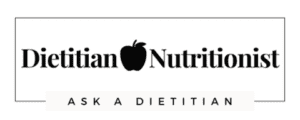The nutrient protein frequently pops up in healthy eating conversations. Why? Well, protein not only lends to fullness and satisfaction at eating occasions, but also plays an essential role in countless body functions and overall health. However, due to dietary restrictions or preferences, some may find it a little harder to include protein in their diet. This challenge may lead to the question, do you need protein every day?
Yes, you need protein every day in order to avoid malnutrition and related health problems. Protein helps in many important body functions and is crucial to consume enough protein in your diet daily since it cannot be stored in the body. Most adults need 0.8 grams of protein per kilogram of body weight per day, and should eat about 15-30 grams of protein at each meal and snack.
Protein is the building block of the body and contributes to satiety (feeling full and satisfied) and energy. Furthermore, protein is an essential macronutrient, along with fat and carbohydrate, and can only be obtained through the diet. A healthy eating pattern includes a balance of all three of these nutrients daily.
Continue reading for more information about protein requirements, sources and benefits.

What happens if you don’t eat protein every day?
Not eating protein every day can result in inadequate intake. As the building block of the body, insufficient protein will harm health, especially when individuals chronically consume too little. Additionally, not eating protein with enough frequency results in the body not fully utilizing all the protein consumed.
Protein plays a key role in:
- Growth, repair, maintenance of body tissue
- The immune system
- Muscle contraction
- Blood clotting
- Digestion
- Hormones
- Skin, hair, nail structure
- Fluid balance
- Nutrient transport/storage
- Energy production
- Fullness
- Blood sugar control
When individuals fail to eat enough protein, these systems and body functions suffer.
Signs you aren’t getting enough protein:
- Lack of feeling full
- Feeling tired
- Sick more frequently
- Hair/skin/nails issues
- Edema (fluid buildup)
- Loss of muscle mass
- Mood changes
- Poor wound healing
Talk to a healthcare professional before any self-diagnosis. These symptoms can occur from a variety of other conditions. Those experiencing growth or who struggle to eat well are most likely to see a protein deficiency. These populations include youth, pregnant women, athletes, individuals with cancer and the elderly.
How much protein do I need per day?
The Recommended Daily Allowance (RDA) of protein for adults is 0.36 grams (g) of protein per pound or 0.8 grams per kilogram of body weight. Around age 40-50, adults may want to include more protein, around 1-1.2 grams of protein per kilogram of bodyweight daily to counteract the common increase in muscle loss.
Needs increase dependent on physical activity with athletes often requiring 1.2-2.0 grams of protein per kilogram of body weight daily. Those who consume mainly plant based may find they need more protein as well. The protein from plants are less bioavailable, meaning individuals are able to use less of the protein.
You can use an online calculator such as the National Institutes of Health Body Weight Planner to calculate your protein recommendations based on many factors such as age, height, weight, activity level, etc.
Furthermore, for a well-balanced diet, 10-25% of calories should come from protein. This number comes to about 200-700 calories in a 2,000-calorie diet, which equals 50 to 175 grams of protein per day. These guidelines help ensure adequate intake of this vitally important nutrient.
How often do you need protein?
Eating an excessive amount of protein at one time with the idea of skipping protein at other eating occasions does not fully benefit the individual. The body can only effectively use a certain amount of protein, generally around 15-30g, every 3-4 hours. The body cannot store the extra protein and the rest will go towards energy storage.
Examples of 15-30 grams of protein:
3 oz meat/poultry/seafood (about the size of a deck of cards) = 21 grams protein
1 Egg with 1 oz cheese on bread = 16 grams
1 cup beans= 18 grams
1 cup Greek yogurt = 23 grams
Consuming protein with every meal and snack will increase satiety (feelings of fullness and satisfaction) and allow the benefits of frequent protein consumption. Also, protein stabilizes blood sugar, preventing energy crashes later in the day. For those looking to build muscle, frequent protein supports goals better than larger and less frequent quantities.
Will more protein give me more muscle strength?
More protein does not necessarily mean increased muscle gains. Rather, muscle strengthening exercises are the biggest contributor to building muscle tissue and power. Protein simply provides the material to repair and grow the muscle in consequence of training. Consequently, excess protein without physical activity will go towards other functions.
As mentioned earlier, the body only uses a limited amount of protein at one time. Protein pulsing or eating 15-30g protein every 3-4 hours will maximize this nutrient for muscle growth. Combining protein with carbohydrate for snacks and meals will also help the body effectively use protein.
Carbohydrates provide energy for training and stimulate the release of insulin, which helps muscle tissue take in the ingested protein. Contrary to popular belief, snacks in the hours before and after working out should contain a majority of carbohydrates with moderate protein. Experts often recommend a 3:1 or 4:1 carbohydrate to protein gram ratio.
Do we eat too much protein?
The average adult gets more than adequate quantities of protein through their regular eating patterns. In general, the high protein shakes and bars often add unnecessary protein with little other nutrition. When individuals consume an excess of protein, their overall nutrition and health may suffer.
Too much protein contributes to an unbalanced diet that leads to nutrient deficiencies. In addition, chronically high protein contributes to kidney stones and constipation and it can be really hard on your organs to process so much extra protein. Your body cannot store extra protein for later. Eating too much is harmful. Protein from mainly animal sources may also increase cholesterol levels and harm heart health.
Experts generally agree that more than 2.0g per kilogram of body weight is too much protein. Individuals should speak to a healthcare professional or a registered dietitian to see how much protein best meets their unique conditions.
How do I eat enough protein as a vegetarian/vegan?
A vegetarian eliminates all meat and poultry from their eating pattern, but may or may not consume dairy, eggs or fish. On the other hand, vegans avoid all animal products including dairy, eggs and fish. While these dietary preferences require more planning to ensure adequate intake of certain nutrients, they can certainly be complete and healthy.
Along with calcium, vitamin D and B-12, protein may be a little more difficult to consume as a vegetarian or vegan. However, many plant-based sources offer quality protein. Plant protein tends to be less bioavailable from plant sources, so vegetarians and vegans may want to consume a little more protein than the average person.
Good plant-based protein includes legumes (soy, tempeh, beans, lentils), nuts and seeds. Thankfully, new research shows that individuals do not need to eat complimentary protein foods at the same time. Most plant based protein will lack sufficient quantities of all amino acids. Due to these deficiencies, it was previously thought that plant proteins needed to be eaten with other foods that contained the missing amino acids. However, eating a variety of foods throughout the day generally leads to adequate intake of all necessary amino acids without the need to purposely combine certain foods.
Imitation meat and supplements provide protein as well, but lack many of the health benefits of whole plant sources. Manufacturers also tend to add sweeteners, sodium and other additives to these foods. These more processed types of protein should be consumed in moderation.
High protein foods
No one food can be considered the “best” protein food. Each of these foods offers unique benefits. Consuming a variety of protein foods will create better health outcomes. On another note, the manner of cooking or preparing dishes will impact nutrient quality. Limit methods that add large amounts of saturated fat, sodium or sugar such as frying, using sweet glazes or buying ultra-processed versions.
The following table lists high protein foods with approximate grams of protein per portion. The grams of protein can vary widely depending on the specific type of protein food listed. This table also only displays some, not all, of the highlights of each food.
| Food | Amount | Protein (g) | Highlights |
| Red Meat | 3 ounces (oz) | ~21 | Great source of B-12, zinc and iron |
| Seafood | 3 oz | ~21 | Known for relatively high content of omega 3 and selenium |
| Poultry | 3 oz | ~21 | Similar benefits to red meat, but often lower in saturated fat |
| Cottage cheese | 1/2 cup (c) | 14 | Protein dense with about 70% calories from protein |
| Eggs | 1 whole | 7 | Nutrient rich with vitamins K, A, D, E, B vitamins, choline, antioxidants and some eggs even contain omega 3 |
| Nuts | 1 oz | 7 | Full of heart healthy fats and fiber |
| Seeds | 1 oz | 7-9 | A nutritious package of protein, healthy fats, fiber and minerals |
| Milk | 1 cup | 8 | A good source of calcium, vitamins A and D, Riboflavin and potassium |
| Cheese | 1 oz | 7 | Contains conjugated linoleum acid (CLA), which may help prevent obesity and heart disease |
| Yogurt | 1 cup | 8 | Contains probiotics that may support a healthy gut |
| Greek yogurt | 1 cup | 23 | Higher in protein than regular yogurt |
| Peanut butter | 2 Tablespoons | 7 | Easy protein addition with various vitamins, minerals and healthy fats |
| Edamame, shelled | 1/2 cup | 11 | Soy products may lower cholesterol. They are also one of the few plant complete proteins (containing all amino acids) |
| Tofu | 3 oz | 9 | Soy isoflavones may protect against heart disease, osteoporosis and some cancers. |
| Tempeh | 3 oz | 15 | Another soy product, this complete protein is often easier to digest due to its fermentation process |
| Lentils/beans | 1/2 cup | 9 | Lentils/beans contain significant amounts of fiber, potassium, folate, iron, phytochemicals and antioxidants. This plant protein also promotes good gut health by providing food, called prebiotics to the good bacteria in the micro biome. |
Many foods contain protein, so eating a balanced diet provides plenty of protein daily for most individuals. Protein shakes and supplements are not typically necessary.
Eating enough protein can benefit your health and limit the risk of weight gain, energy crashes, and disease.
See also:
References
Eatright. Academy of Nutrition and Dietetics. https://www.eatright.org/fitness/sports-and-performance/fueling-your-workout/protein-and-the-athlete.
